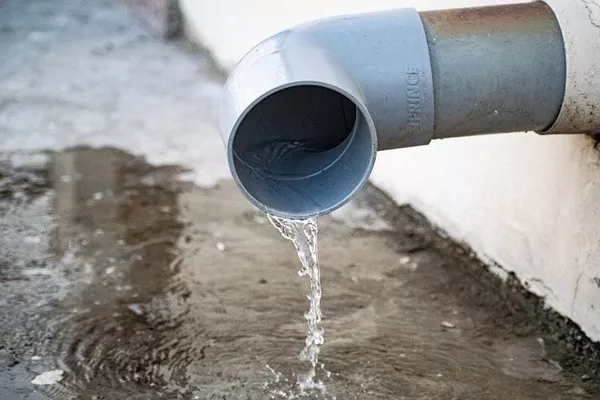Have you ever walked into your bathroom only to be greeted by a foul sewer smell? This unpleasant experience can be quite alarming and definitely needs to be addressed promptly. Several factors can contribute to the presence of sewer odors in your bathroom, ranging from simple issues to more complex plumbing problems. Understanding these causes is key to effectively resolving the issue and restoring a fresh environment to your bathroom.
Dry P-Traps: Why is Water Important?
One common culprit behind sewer smells in bathrooms is a dry P-trap. But what exactly is a P-trap and why does it matter? The P-trap is a U-shaped pipe located beneath sinks, showers, and tubs. Its purpose is to hold a small amount of water, which acts as a barrier to prevent sewer gases from entering your home. When these traps dry out due to lack of use or other issues, the barrier is compromised, allowing sewer odors to permeate back into your bathroom.
When sinks, showers, or tubs go unused for an extended period, the water in the P-trap can evaporate, leaving an empty pipe where sewer gases can easily escape. This is a common occurrence in guest bathrooms or basement bathrooms that aren’t frequently used. Additionally, improper installation or damage to the P-trap can lead to leaks, which not only cause sewer smells but also potential water damage. Checking and maintaining the water levels in your P-traps regularly is essential to prevent this issue.
To remedy a dry P-trap, simply run water in the affected fixture to refill the trap and create the necessary seal. For seldom-used drains, consider periodically running water through them to keep the traps functional. If you suspect a leak or damage to the P-trap, it’s advisable to seek professional plumbing assistance to repair or replace the affected components.
Blocked or Venting Drains: Are Vents Necessary?
Another potential cause of sewer odors in your bathroom is blocked or improperly vented drains. Why are vents necessary in plumbing systems? Plumbing vents, typically located on roofs, allow sewer gases to escape outdoors rather than building up and entering your living space. They work in conjunction with the drainage system to maintain proper air pressure and prevent odors from emanating into your home.
If these vents become blocked due to debris, animal nests, or other obstructions, the drainage system can become negatively pressurized, leading to suction that pulls sewer gases into the pipes and eventually into your bathroom. Additionally, drain vents that are undersized or improperly installed may not effectively vent gases, contributing to odor issues within your plumbing system.
To address venting problems, it’s important to inspect your roof vents regularly for any signs of blockages or damage. Clearing debris and ensuring vents are free from obstructions can often resolve odor problems associated with blocked drains. If you suspect that your plumbing vents are undersized or incorrectly installed, consulting with a licensed plumber is recommended to assess and correct the issue.
Faulty Toilet Seals: Could This Be the Source?
One specific area prone to causing sewer smells in bathrooms is the toilet seal. What role does the toilet seal play in preventing odors? The toilet seal, also known as the wax ring, is positioned between the base of the toilet and the flange of the drain pipe. Its primary function is to create a watertight seal that prevents leaks and blocks sewer gases from escaping into your bathroom.
Over time, toilet seals can degrade or become damaged due to wear and tear, causing them to lose their effectiveness. A compromised toilet seal can allow sewer gases to seep into the bathroom, resulting in unpleasant odors that linger near the base of the toilet. In addition to odor issues, a faulty toilet seal can lead to water leaks around the base of the toilet, potentially causing damage to the flooring and subflooring.
If you suspect that a faulty toilet seal is the source of sewer smells in your bathroom, it’s crucial to address the issue promptly. Replacing the wax ring and ensuring a proper seal between the toilet and the drain pipe can effectively eliminate odors and prevent further damage. For those unfamiliar with toilet repair or installation, enlisting the help of a qualified plumber is recommended to ensure the job is done correctly.
Sewer Line Issues: Is This a More Serious Problem?
In some cases, sewer smells in the bathroom may indicate more significant problems with the main sewer line. What could cause sewer line issues to affect your bathroom? Cracked, broken, or clogged sewer lines can lead to sewage backups or leaks, which can result in foul odors permeating through drains and fixtures within your home. Tree roots, ground shifting, or aging pipes are common factors that can compromise the integrity of sewer lines over time.
Identifying sewer line issues requires careful inspection and assessment by a professional plumber. Symptoms such as multiple drains backing up simultaneously, gurgling noises from drains, or sewage odors emanating from different fixtures throughout the house are indicative of potential sewer line problems. Addressing these issues promptly is crucial to prevent more extensive damage and health hazards associated with sewage leaks.
If sewer line issues are suspected, it’s advisable to contact a licensed plumber with experience in sewer line repair and replacement. Modern techniques such as video inspection can be utilized to pinpoint the exact location and nature of the problem, allowing for targeted repairs that minimize disruption and cost.
Conclusion
Dealing with sewer smells in your bathroom can be unpleasant and concerning, but understanding the underlying causes is the first step toward effective resolution. Whether it’s a simple matter of a dry P-trap or a more complex sewer line issue, prompt action and professional assistance are key to restoring a fresh and comfortable environment to your bathroom. By addressing these issues proactively and ensuring proper maintenance of your plumbing system, you can prevent future odor problems and maintain a clean, healthy home environment for you and your family.

